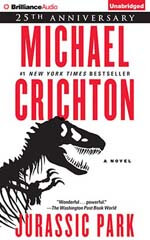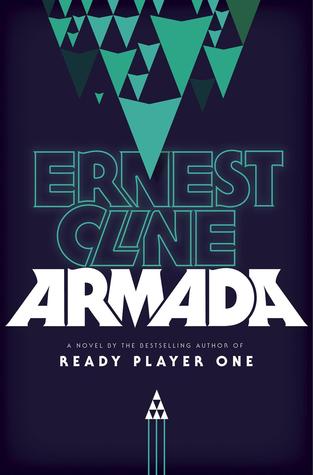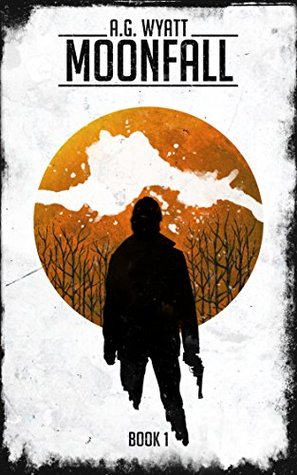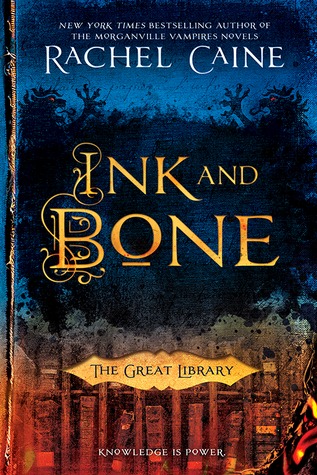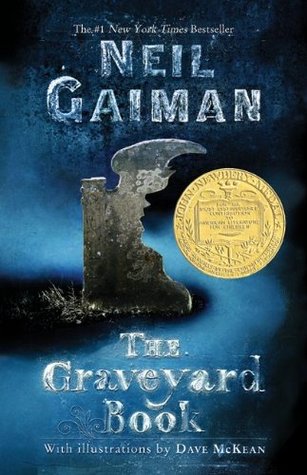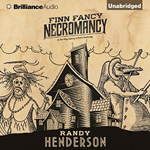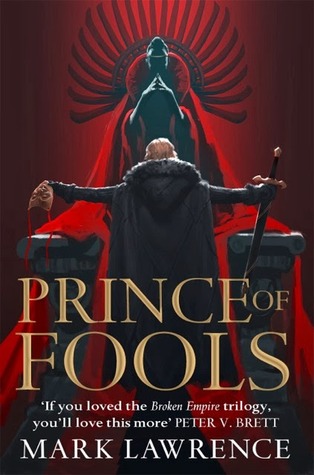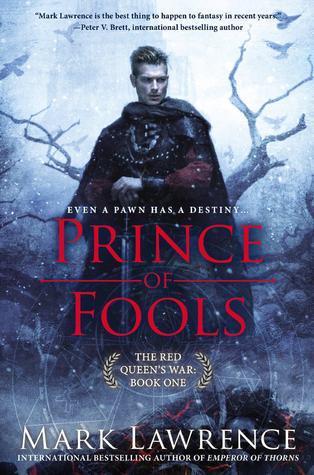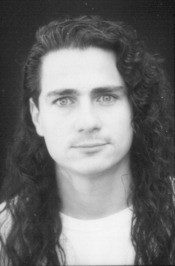I've been a fan of Peter Orullian since his debut, The Unremembered, and I'm still looking forward to Trial of Intentions, which is both a sequel and a starting point in The Vault of Heaven series. I would really appreciate it if someone could add an extra couple hours per day that's only allowed to be used for personal, free time. Thanks.
Peter was gracious enough to let me bombard him with questions and I really enjoyed the answers he provides relating to his series and the decision for an author's definitive edition of The Unremembered, writing in general, music, and much more. I hope you enjoy...
_______________________________
Bryce: Hi Peter, thanks
for letting me take some time out of your busy schedule. Tell me about a
typical writing day. Do you have any routines? Any music that you write better
to than others? Any set schedule?
Peter: I get up at 3:30 a.m. to write before going to work. I do
roughly three hours. I don’t care about word count, or page count. I just do
the time. Same thing on weekends, holidays, vacations. Every day. That’s the
routine.
I
don’t write to music. A lot of folks ask this, since I’m a musician, and quite
passionate about music. But for me, music isn’t a background thing. If music is
on, it requires my attention. And if I’m in public, I’m either singing
myself—much to the embarrassment, usually, of those I’m with—or trying to
figure out what’s playing on the speakers of whatever establishment I’m
visiting. I use Shazam a lot.
Bryce: Your publisher,
Tor, just released the author’s definitive edition of The Unremembered. What
lead to this new edition? If I read the first version (which I did), do I need
to read this one to understand the rest of the series? Will it change my
understanding of the rest of the series if I only read that first version?
Peter:
First off, no, you don’t need to read the Author’s Edition of The Unremembered
to be fine jumping into book two, Trial of Intentions. If you read the original
version, you’re good. In fact, due to the delay—which I’ll explain in a
moment—I wrote Trial of Intentions as an entry point to the series. So, readers
who’ve never read anything by me can start with Trial of Intentions just fine.
The
Author’s Edition came about primarily because of a bad author/editor pairing.
Later, when my publisher graciously allowed for a new pairing, I got talk to my
new editor, sharing what I’d originally intended, and the Author’s Edition was
born. It’s actually substantially shorter than the original. I’ve sharpened
dialogue and motivation, warmed up a few characters, and added some things to
tie to Trial of Intentions more seamlessly.
 Bryce: Speaking of the
rest of the series, what are the plans for the entire series, The Vault of
Heaven? How many books do we get to look forward to and now that the definitive
version of The Unremembered is out, along with its sequel, Trial of Intentions,
when’s the next one coming out? Because of course that’s what you want to talk
about after all that work. J
Bryce: Speaking of the
rest of the series, what are the plans for the entire series, The Vault of
Heaven? How many books do we get to look forward to and now that the definitive
version of The Unremembered is out, along with its sequel, Trial of Intentions,
when’s the next one coming out? Because of course that’s what you want to talk
about after all that work. J
Peter:
I’m always suspicious of writers who give exact book series counts. But that’s
just me. Originally, I’d thought six to eight books. I’m now feeling it’s more
like five or six. But we’ll see. The thing I can promise you is that I won’t
drag it out. I will be sure to do justice to the story I’ve conceived, but I
won’t belabour it. Besides, I have other books I want to write, and I can’t
really start those until I’m done with the Vault of Heaven series.
Bryce: How does writing
the sequel or future volumes in the series compare with writing the first book?
Do you already have a lot of the big events planned out ahead of time?
Peter:
In some ways, writing the sequel was more fun. I had a lot of the world
building done, so I could spend more time with narrative and character
development. And Trial of Intentions is where so much of what’s unique about my
world really kicks into high gear. There’s some major science stuff—astronomy,
mathematics, physics, philosophy, cosmology, etc. The music magic system—which
my readers and reviewers are saying is unlike anything they’ve ever read
before—steps into the spotlight. I twist old tropes, challenging reader expectations.
And I deal with some sensitive topics, like suicide, giving characters some
deep motivation.
And
yes, I have some of the big events all mapped out. Not all of them. I’ve left
myself room to play. But I know the broad strokes, for sure. And the ending.
Bryce: Not only do you
publish books, but you work a day job at Microsoft and write and play music.
How much does music effect your work as an author? Do you find yourself drawn
to other musician/authors? Do you recommend any?
 Peter:
Well, I think music influences my writing in a few ways. First, there’s the
overt stuff, like my music magic system. I spent a lot of time developing magic
in my world. I started with the idea that there’d be what I call “governing
dynamics,” akin to mechanical law in our world—things like gravity and
magnetism. In my fantasy world, the central governing dynamic is: Resonance.
It’s a unifying principle for magic systems everywhere. Which means that while
the magic systems—so far I have five—all look and are expressed differently,
they all operate off Resonance. The reader can look at them and understand
this, even though the magic systems are quite different.
Peter:
Well, I think music influences my writing in a few ways. First, there’s the
overt stuff, like my music magic system. I spent a lot of time developing magic
in my world. I started with the idea that there’d be what I call “governing
dynamics,” akin to mechanical law in our world—things like gravity and
magnetism. In my fantasy world, the central governing dynamic is: Resonance.
It’s a unifying principle for magic systems everywhere. Which means that while
the magic systems—so far I have five—all look and are expressed differently,
they all operate off Resonance. The reader can look at them and understand
this, even though the magic systems are quite different.
Then,
there’s music as a part of the cultures of my world. I’ve woven it in deeply.
Things like entire cultures that pivot on music. Conservatories. Etc.
And
I’ve had many readers tell me that they find my writing musical. I don’t try to
do this. But I’ve begun to wonder if there’s something about being a musician
that gets inside the words. In any case, that’s what my readers say. And
whenever they do, I get a happy.
I
don’t know very many musician authors, I guess. I did become fast friends with
Ty Franck—half of James S.A. Corey—because we both love metal. Does that count?
Bryce: And how do you
balance working full time with publishing? I know the publishing schedule can
be gruelling.
Peter:
It’s mostly what I said above, I get up early. I have to. I’m too emotionally
exhausted from corporate America when I get home to write fiction.
Bryce: Are there any
things that have kept you grounded when times get tough?
Peter:
My family. And music. And the sky, mostly at night.
Biggest
priority in my life is my family. Being a dad is the best thing I’ve ever done.
Love it!
And
I can put on certain bands and listen to their music and it helps the bullshit
fade away.
And
I’m a bit of an amateur astronomer. I’ve always loved the stars. I find looking
up at them always puts things into perspective.
Bryce: Do you have any
recommendations or advice to authors trying to break into publishing?
Peter:
Read. Write. Keep doing those things. Keep pushing yourself to learn and
improve. Don’t give up, no matter what anyone says. And then try to be your
most gracious, authentic self, and go out and meet other writers in the real
world—not just online. We’re usually very supportive and helpful. We’ve been
there.
Bryce: Traditional
publishing versus self-publishing. What are your feelings of both, what do you
feel are their strengths and weaknesses?
Peter:
I’m of the mind that they can/should co-exist. Traditional publishing is less
nimble, more risk-averse, but they do often have more editorial rigor, as well
as access to the retail channel, which is where most books are sold.
Self-publishing allows for rapidity, more chance-taking, and more revenue for
the writer, but it has virtually no access to retail assortment, and the
digital shelves are crowded—not to mention that discovery is a challenge, and
most writers don’t understand how to drive digital discovery of their work (and
to be fair, much of it is out of their control); plus the majority of
self-published work hasn’t gone through the editorial rigor I mentioned, or
smart product packaging and design. Oh, and with all the review gaming that
goes on, it makes it hard for readers to wade through the sea of titles.
Bryce: Thanks for
stopping by, Trial of Intentions is one of my most highly anticipated books
this year and I can’t wait to jump in. Any final comments?
Peter:
Thanks, Bryce. Love hearing that! I hope you enjoy it.
Nothing
really. Just that I appreciate your time; as one who puts a premium on time,
I’m genuinely grateful for yours in doing this interview. Cheers!
____________________________
Thanks again to Peter! Check out his books below and a quick author bio:
Peter Orullian has worked in marketing at Xbox for nearly a decade, most recently leading the Music and Entertainment marketing strategy for Xbox LIVE, and has toured as a featured vocalist internationally at major music festivals. He has published several short stories. The Unremembered is his first novel. He lives in Seattle.
The Vault of Heaven:


